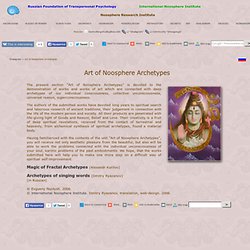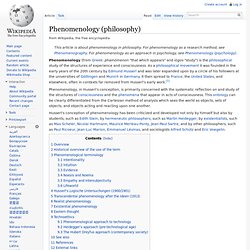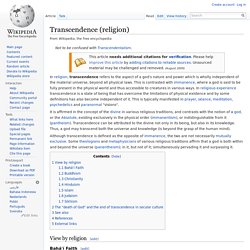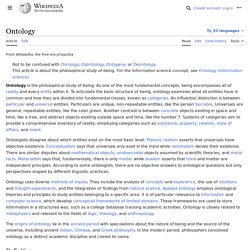

James William Haddrell
I am Host. I dear you to copy my actions. I write for the queen. I write for history, I write for myself. Don't F. with me. I created auto-genetics. I am James William Haddrell and I have a soul mate. My plan for the future as i am the now generations futurist, Is to; Brandise the world, Explore the No-Etic sciences and create auto-tenetics to be used for earths progression.
Art of Noosphere Archetypes. Art of Noosphere Archetypes The present section "Art of Noosphere Archetypes" is devoted to the demonstration of works and works of art which are connected with deep archetypes of our individual consciousness, collective unconsciousness, universal reason, superconsciousness.

The authors of the submitted works have devoted long years to spiritual search and laborious research of ancient traditions, their judgement in connection with the life of the modern person and society. All their products are penetrated with life-giving light of Goods and Reason, Belief and Love. Presentations. “Can you recommend a good book on writing?” Faster Writing. Presentation Science. Common Mistakes. Avoiding Plagiarism. Literature Review & Evaluation. Writing Quality. Sociology. Psychology. Study. Social. Linguistics. Noology. History. Update. Interesting Research Resources. Academia. Edmund Husserl (1859-1938) Books. Design. Private. 2. Perception. Lit/Info Search.
Phenomenology. Philosophy. Concepts - Theories. George Wilhelm Fredrich Hegel. Phenomenology (philosophy) Phenomenology (from Greek: phainómenon "that which appears" and lógos "study") is the philosophical study of the structures of experience and consciousness.

As a philosophical movement it was founded in the early years of the 20th century by Edmund Husserl and was later expanded upon by a circle of his followers at the universities of Göttingen and Munich in Germany. It then spread to France, the United States, and elsewhere, often in contexts far removed from Husserl's early work.[1]
Concepts - Theories. Transcendence (religion) In religion, transcendence refers to the aspect of a god's nature and power which is wholly independent of the material universe, beyond all physical laws.

This is contrasted with immanence, where a god is said to be fully present in the physical world and thus accessible to creatures in various ways. In religious experience transcendence is a state of being that has overcome the limitations of physical existence and by some definitions has also become independent of it. This is typically manifested in prayer, séance, meditation, psychedelics and paranormal "visions". Although transcendence is defined as the opposite of immanence, the two are not necessarily mutually exclusive. Some theologians and metaphysicians of various religious traditions affirm that a god is both within and beyond the universe (panentheism); in it, but not of it; simultaneously pervading it and surpassing it. Transcendence is described and viewed from a number of diverse perspectives in Hinduism.
Thomas J. Phenomenology (philosophy) Phenomenology (from Greek: phainómenon "that which appears" and lógos "study") is the philosophical study of the structures of experience and consciousness. As a philosophical movement it was founded in the early years of the 20th century by Edmund Husserl and was later expanded upon by a circle of his followers at the universities of Göttingen and Munich in Germany.
It then spread to France, the United States, and elsewhere, often in contexts far removed from Husserl's early work.[1] Phenomenology, in Husserl's conception, is primarily concerned with the systematic reflection on and study of the structures of consciousness and the phenomena that appear in acts of consciousness. This ontology (study of reality) can be clearly differentiated from the Cartesian method of analysis which sees the world as objects, sets of objects, and objects acting and reacting upon one another.
There are several assumptions behind phenomenology that help explain its foundations. Religion & Spirituality. Archeological theory. Social phenomenology. Ontology. Study of the nature of being, becoming, existence or reality, as well as the basic categories of being and their relations Parmenides was among the first to propose an ontological characterization of the fundamental nature of reality.

Etymology[edit] While the etymology is Greek, the oldest extant record of the word itself, the New Latin form ontologia, appeared in 1606 in the work Ogdoas Scholastica by Jacob Lorhard (Lorhardus) and in 1613 in the Lexicon philosophicum by Rudolf Göckel (Goclenius). The first occurrence in English of ontology as recorded by the OED (Oxford English Dictionary, online edition, 2008) came in a work by Gideon Harvey (1636/7–1702): Archelogia philosophica nova; or, New principles of Philosophy. Leibniz is the only one of the great philosophers of the 17th century to have used the term ontology.[6] Overview[edit] Some fundamental questions[edit] Humanoid Robots. Internet of Things. Writing Quality. Writing Quality.